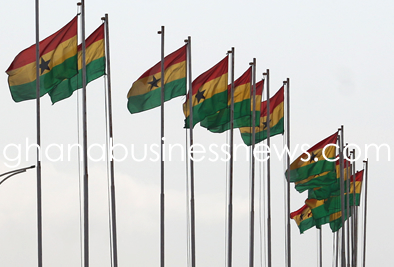Ghana’s mixed economic growth and worsening inequality
 Ghana’s economic growth has been mixed. After years of good economic performance, the country entered a phase of economic deceleration with rates of 7.3 per cent in 2013, down from 9.3 per cent in 2012 and 14 per cent in 2011, and during these periods human exclusion has deepened, according to the Country Profile released today August 21, 2017, by the Economic Commission for Africa (ECA).
Ghana’s economic growth has been mixed. After years of good economic performance, the country entered a phase of economic deceleration with rates of 7.3 per cent in 2013, down from 9.3 per cent in 2012 and 14 per cent in 2011, and during these periods human exclusion has deepened, according to the Country Profile released today August 21, 2017, by the Economic Commission for Africa (ECA).
The Profile notes that the slowdown which continued in 2014 with a growth rate of 4 per cent, dipping to 3.9 per cent in 2015 paint a picture of unsustainable macroeconomic fundamentals which has been in the making for many years.
It added that the fiscal deficit as a percentage of GDP remained high at 7.2 per cent in 2015, after a level of 10.2 per cent in 2014. The Profile further stated that while the ratio of debt to GDP hovered around 70 per cent, the current account deficit reached 8.3 per cent in 2015, compared with 9.6 per cent in 2014.
Taking cognizance of other factors, the Profile pointed out that based on the upper poverty line of about $307.1, the proportion of the population the proportion of the population defined as poor dropped from 28.5 per cent in 2005/06 to 24.2 per cent in 2012/13.
“Although inequality is reported to have worsened, access to health care generally improved from 2005 to 2013. The percentage of people who reported an illness but did not seek health care was 34 per cent in 2013, down from 40.6 per cent in 2005. The focus of education policy in Ghana over the past decade has been geared towards the attainment of the Millennium Development Goals relevant to education as well as the Education for All goals. The gross primary school enrolment goal was achieved in 2012, ahead of the 2015 schedule,” it said.
On the country’s energy crisis, it indicated that since 2013, Ghana has been in the midst of a severe energy crisis, which has become a source of major public outrage and is paralysing the economy.
Load-shedding power outages have worsened since December 2014. Serious problems related to the availability of quality electricity have a negative impact on prospects for the country’s economy.
“Therefore, in order to strengthen the recovery of the economy, strong policies should be implemented in the electricity sector. Such policies should include educating citizens on the better use of electricity, implementing programmes such as the prepaid metering system, investing in the electricity sector and developing renewable energy,” it said.
The Profile states that the energy sector in Ghana has been hard hit by the supply side of the sector, undermining the accessibility, affordability and reliability of the energy supply .
It noted that the energy mix in Ghana is comparatively simple, but it is not without its challenges. The country relies on biomass/charcoal (39.8 per cent in 2014), gas and crude oil, plus petroleum products (46.6 per cent), and electricity (13.6 per cent) to meet the total energy needs of its population and industry (Energy Commission, 2015). Currently, however, electricity demand outweighs supply, creating an erratic electricity distribution situation. Electricity is rationed through load shedding, it added.
During the launch, Ms. Thokozile Ruzvidzo, Director, Social Development Policy Division of the ECA noted that the key driver of human exclusion in West Africa was illiteracy, and she called on Africa to tell its own narrative using its own data.
“Africa has to tell its own story, but it can’t, if it doesn’t have its own data,” she said, adding that the Africa Social Development Index, has been incorporated in the Country Profiles of West African countries that were all released today, with that of Ghana.
Dr. Dimitri Sanga, Director of the ECA’s Sub-Regional Office for West Africa, said: “Ghana in its quest to stimulate its socio-economic development, has just passed a reform, through a ten-point agenda, aimed at transforming the industrial sector, this August 14, 2017. Boosting production, transportation and the distribution of electricity in Ghana should greatly contribute towards implementing this reform geared at creating jobs and prosperity for all Ghanaians.”
By Emmanuel K. Dogbevi
Copyright ©2017 by Creative Imaginations Publicity
All rights reserved. This news item any portion thereof may not be reproduced or used in any manner whatsoever without the express written permission of the publisher except for the use of brief quotations in reviews.
